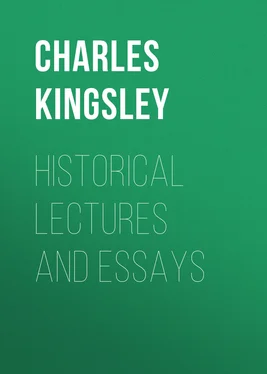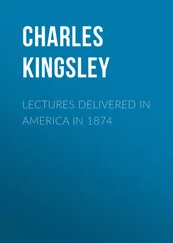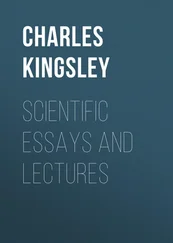Charles Kingsley - Historical Lectures and Essays
Здесь есть возможность читать онлайн «Charles Kingsley - Historical Lectures and Essays» — ознакомительный отрывок электронной книги совершенно бесплатно, а после прочтения отрывка купить полную версию. В некоторых случаях можно слушать аудио, скачать через торрент в формате fb2 и присутствует краткое содержание. Жанр: foreign_prose, История, foreign_edu, foreign_antique, на английском языке. Описание произведения, (предисловие) а так же отзывы посетителей доступны на портале библиотеки ЛибКат.
- Название:Historical Lectures and Essays
- Автор:
- Жанр:
- Год:неизвестен
- ISBN:нет данных
- Рейтинг книги:5 / 5. Голосов: 1
-
Избранное:Добавить в избранное
- Отзывы:
-
Ваша оценка:
- 100
- 1
- 2
- 3
- 4
- 5
Historical Lectures and Essays: краткое содержание, описание и аннотация
Предлагаем к чтению аннотацию, описание, краткое содержание или предисловие (зависит от того, что написал сам автор книги «Historical Lectures and Essays»). Если вы не нашли необходимую информацию о книге — напишите в комментариях, мы постараемся отыскать её.
Historical Lectures and Essays — читать онлайн ознакомительный отрывок
Ниже представлен текст книги, разбитый по страницам. Система сохранения места последней прочитанной страницы, позволяет с удобством читать онлайн бесплатно книгу «Historical Lectures and Essays», без необходимости каждый раз заново искать на чём Вы остановились. Поставьте закладку, и сможете в любой момент перейти на страницу, на которой закончили чтение.
Интервал:
Закладка:
England was to be conquered by the Norman; but by the civilised, not the barbaric; by the Norse who had settled, but four generations before, in the North East of France under Rou, Rollo, Rolf the Ganger—so-called, they say, because his legs were so long that, when on horseback, he touched the ground and seemed to gang, or walk. He and his Norsemen had taken their share of France, and called it Normandy to this day; and meanwhile, with that docility and adaptability which marks so often truly great spirits, they had changed their creed, their language, their habits, and had become, from heathen and murderous Berserkers, the most truly civilised people of Europe, and—as was most natural then—the most faithful allies and servants of the Pope of Rome. So greatly had they changed, and so fast, that William Duke of Normandy, the great-great-grandson of Rolf the wild Viking, was perhaps the finest gentleman, as well as the most cultivated sovereign, and the greatest statesman and warrior in all Europe.
So Harold of Norway came with all his Vikings to Stamford Bridge by York; and took, by coming, only that which Harold of England promised him, namely, “forasmuch as he was taller than any other man, seven feet of English ground.”
The story of that great battle, told with a few inaccuracies, but told as only great poets tell, you should read, if you have not read it already, in the “Heimskringla” of Snorri Sturluson, the Homer of the North:
High feast that day held the birds of the air and the beasts of the field,
White-tailed erne and sallow glede,
Dusky raven, with horny neb,
And the gray deer the wolf of the wood.
The bones of the slain, men say, whitened the place for fifty years to come.
And remember, that on the same day on which that fight befell—September 27, 1066—William, Duke of Normandy, with all his French-speaking Norsemen, was sailing across the British Channel, under the protection of a banner consecrated by the Pope, to conquer that England which the Norse-speaking Normans could not conquer.
And now King Harold showed himself a man. He turned at once from the North of England to the South. He raised the folk of the Southern, as he had raised those of the Central and Northern shires; and in sixteen days—after a march which in those times was a prodigious feat—he was entrenched upon the fatal down which men called Heathfield then, and Senlac, but Battle to this day—with William and his French Normans opposite him on Telham hill.
Then came the battle of Hastings. You all know what befell upon that day; and how the old weapon was matched against the new—the English axe against the Norman lance—and beaten only because the English broke their ranks. If you wish to refresh your memories, read the tale once more in Mr. Freeman’s “History of England,” or Professor Creasy’s “Fifteen Decisive Battles of the World,” or even, best of all, the late Lord Lytton’s splendid romance of “Harold.” And when you go to England, go, as some of you may have gone already, to Battle; and there from off the Abbey grounds, or from Mountjoye behind, look down off what was then “The Heathy Field,” over the long slopes of green pasture and the rich hop-gardens, where were no hop-gardens then, and the flat tide-marshes winding between the wooded heights, towards the southern sea; and imagine for yourselves the feelings of an Englishman as he contemplates that broad green sloping lawn, on which was decided the destiny of his native land. Here, right beneath, rode Taillefer up the slope before them all, singing the song of Roland, tossing his lance in air and catching it as it fell, with all the Norse berserker spirit of his ancestors flashing out in him, at the thought of one fair fight, and then purgatory, or Valhalla—Taillefer perhaps preferred the latter. Yonder on the left, in that copse where the red-ochre gully runs, is Sanguelac, the drain of blood, into which (as the Bayeux tapestry, woven by Matilda’s maids, still shows) the Norman knights fell, horse and man, till the gully was bridged with writhing bodies for those who rode after. Here, where you stand—the crest of the hill marks where it must have been—was the stockade on which depended the fate of England. Yonder, perhaps, stalked out one English squire or house-carle after another: tall men with long-handled battle-axes—one specially terrible, with a wooden helmet which no sword could pierce—who hewed and hewed down knight on knight, till they themselves were borne to earth at last. And here, among the trees and ruins of the garden, kept trim by those who know the treasure which they own, stood Harold’s two standards of the fighting-man and the dragon of Wessex. And here, close by (for here, for many a century, stood the high altar of Battle Abbey, where monks sang masses for Harold’s soul), upon this very spot the Swan-neck found her hero-lover’s corpse. “Ah,” says many an Englishman—and who will blame him for it—“how grand to have died beneath that standard on that day!” Yes, and how right. And yet how right, likewise, that the Norman’s cry of Dexaie !—“God Help!”—and not the English hurrah, should have won that day, till William rode up Mountjoye in the afternoon to see the English army, terrible even in defeat, struggling through copse and marsh away toward Brede, and, like retreating lions driven into their native woods, slaying more in the pursuit than they slew even in the fight.
But so it was to be; for so it ought to have been. You, my American friends, delight, as I have said already, in seeing the old places of the old country. Go, I beg you, and look at that old place, and if you be wise, you will carry back from it one lesson: That God’s thoughts are not as our thoughts; nor His ways as our ways.
It was a fearful time which followed. I cannot but believe that our forefathers had been, in some way or other, great sinners, or two such conquests as Canute’s and William’s would not have fallen on them within the short space of sixty years. They did not want for courage, as Stamford Brigg and Hastings showed full well. English swine, their Norman conquerors called them often enough; but never English cowards. Their ruinous vice, if we are to trust the records of the time, was what the old monks called accidia—ακηδια—and ranked it as one of the seven deadly sins: a general careless, sleepy, comfortable habit of mind, which lets all go its way for good or evil—a habit of mind too often accompanied, as in the case of the Angle-Danes, with self-indulgence, often coarse enough. Huge eaters and huger drinkers, fuddled with ale, were the men who went down at Hastings—though they went down like heroes—before the staid and sober Norman out of France.
But those were fearful times. As long as William lived, ruthless as he was to all rebels, he kept order and did justice with a strong and steady hand; for he brought with him from Normandy the instincts of a truly great statesman. And in his sons’ time matters grew worse and worse. After that, in the troubles of Stephen’s reign, anarchy let loose tyranny in its most fearful form, and things were done which recall the cruelties of the old Spanish conquistadores in America. Scott’s charming romance of “Ivanhoe” must be taken, I fear, as a too true picture of English society in the time of Richard I.
And what came of it all? What was the result of all this misery and wrong?
This, paradoxical as it may seem: That the Norman conquest was the making of the English people; of the Free Commons of England.
Paradoxical, but true. First, you must dismiss from your minds the too common notion that there is now, in England, a governing Norman aristocracy, or that there has been one, at least since the year 1215, when Magna Charta was won from the Norman John by Normans and by English alike. For the first victors at Hastings, like the first conquistadores in America, perished, as the monk chronicles point out, rapidly by their own crimes; and very few of our nobility can trace their names back to the authentic Battle Abbey roll. The great majority of the peers have sprung from, and all have intermarried with, the Commons; and the peerage has been from the first, and has become more and more as centuries have rolled on, the prize of success in life.
Читать дальшеИнтервал:
Закладка:
Похожие книги на «Historical Lectures and Essays»
Представляем Вашему вниманию похожие книги на «Historical Lectures and Essays» списком для выбора. Мы отобрали схожую по названию и смыслу литературу в надежде предоставить читателям больше вариантов отыскать новые, интересные, ещё непрочитанные произведения.
Обсуждение, отзывы о книге «Historical Lectures and Essays» и просто собственные мнения читателей. Оставьте ваши комментарии, напишите, что Вы думаете о произведении, его смысле или главных героях. Укажите что конкретно понравилось, а что нет, и почему Вы так считаете.












